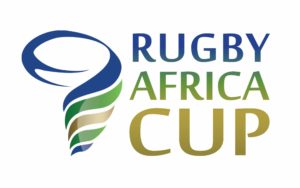Rugby Africa unveils a new competition format where the 16 best African teams will compete in a truly continental rugby championship made up of 20 matches divided into 3 stages
The first stage consists of a qualifying round: the teams ranked 9th, 10th, 11th and 12th will oppose the teams ranked 13th, 14th, 15th and 16th, respectively, in a single match at home. The winner of each of these four matches will progress to the group phase. In this second stage, the 12 teams are divided into 4 pools; inside each pool the 3 teams play against each other in a home or away game. The winner of each group will progress to the final tournament of the RAC. The top four teams from Africa will meet in one venue for the final stage of the RAC, which will include two semi-finals, a play-off for third place and, ultimately, the final to decide who will be the African champions.
Between the elimination series, the group rounds and the final tournament, there will be a total of twenty matches spread over up to sixteen different host countries across Africa.
“This arrangement gives every team a chance to make it to the finals and will reward merit and performance. The teams that are eliminated in the first round will have another chance in November 2020 to try and re-qualify. Rugby Africa (www.RugbyAfrique.com) is already exploring the possibility of creating play-offs with other nations not currently part of the 16 but who are keen to be included. All the member countries of Rugby Africa looking forward to participating in this competition! This exciting format is a totally different model of competition, with each of the three stages offering its own unique set of challenges.” Andrew Owor, Vice President of Rugby Africa said.
“Our idea with RAC is to create a clear path for the African teams who are fully aware of the steps they need to take to qualify for the Rugby World Cup. But what is also interesting for the teams that might find it challenging to qualify for France 2023, is that RAC gives them a new set of objectives: to secure a place in the group phase so that they can see how they measure up to the best teams, or even better, to join the top eight to be sure of a place in RAC the following year,” added Guédel N’Diaye, director of competitions with Rugby Africa.
The president of Rugby Africa, Khaled Babbou, expanded on the strategy behind this new project: “We are completely revising our system of competition. There was a study phase immediately after the inauguration of the new executive committee which led us to make difficult but necessary decisions to reposition our brand so that it brings more value to our federations and our partners in the long term. By introducing this new format, we hope to forge new partnerships that will allow us to improve our offering every year.”
“Rugby Africa is committed to a dual strategy, with an objective to stimulate more countries to get involved in the adventure that is rugby, to produce a great pool of high-level African athletes and to raise up our teams to a standard of excellence so that they gain recognition at an international level. Rugby Africa is already working in this direction with the other regions and with World Rugby to set up more encounters between the different continents so that our teams can increase their match experience.”
Herbert Mensah, co-opted member of the Executive Committee of Rugby Africa, underlines the importance of this decision in the strategic framework of Rugby Africa’s communication and promotion plans : “The Board’s ability to attract new media partners in addition to APO Group will ensure that sponsors and their contributions will be viewed across the continent as well as globally. It is our aim to sensitise current global sponsors of the largest growing emerging market which is Africa. This is a very bold move on the part of the Board aiming and it will require unions and regions to work closer together to raise awareness, competitions and sponsorship for other supporting programmes”
“The unveiling of this new competition format is very exciting for us at APO Group because it give us an opportunity to further optimise our communication plans promoting African rugby. The new easy to follow format helps with brand positioning as we work together to attract new sponsors. We have always been aligned with the values of leadership and spirit of commitment that Africa rugby represents and we look forward to continuing our support of the journey and evolution of the game”, said Lionel Reina, CEO of APO Group, the Main Official Partner of Rugby Africa.
Participating Teams
Current African rankings (Men’s senior, Rugby Union) used as a basis for the Rugby Africa Cup :
1. Namibia
2. Kenya
3. Uganda
4. Tunisia
5. Zimbabwe
6. Algeria
7. Morocco
8. Zambia
9. Madagascar
10. Côte d’Ivoire
11. Senegal
12. Ghana
13. Botswana
14. Mauritius
15. Rwanda
16. Nigeria
Elimination stage: November 2019 – 4 single matches
23 November : Côte d’Ivoire vs Rwanda in Abidjan / Ghana vs Botswana in Ghana
30 November : Senegal vs Mauritius in Dakar
1 December : Madagascar vs Nigeria in Antananarivo
Group stage: From June 2020 onwards – 3 matches per group, 12 in total
Group A: Namibia, Zambia, Winner of the match Madagascar vs Nigeria
Group B: Kenya, Morocco, Winner of the match Côte d’Ivoire vs Rwanda
Group C: Uganda, Algeria, Winner of the match Senegal vs Mauritius
Group D: Tunisia, Zimbabwe, Winner of the match Ghana vs Botswana
Final stage: July to August 2020 – 4 matches
Semi-final 1: Group A Winner vs Group D Winner
Semi-final 2: Group B Winner vs Group C Winner
Play-off for 3rd place: Loser of semi-final 1 vs Loser of semi-final 2
Grand final: Winner of semi-final 1 vs Winner of semi-final 2
Distributed by APO Group on behalf of Rugby Africa.

